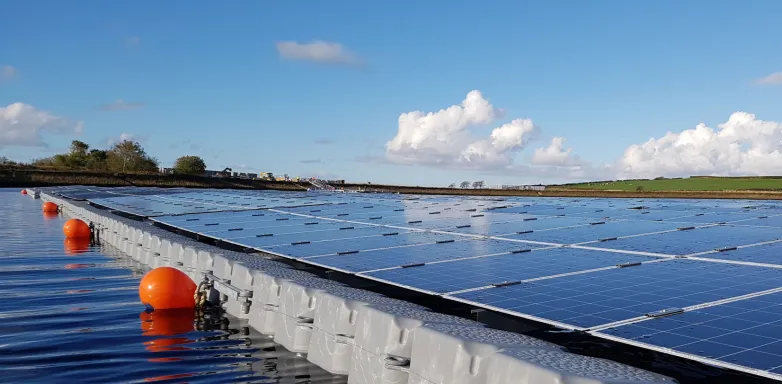New floating solar research demonstrates water quality improvements
- A brand-new research study in the UK has found that floating solar setups may assist to minimize the impact of climate modification on rivers as well as lakes and assist protect water high quality, yet much more study is required.

While the advance of floating PV setups (FPV) has confirmed that bodies of water can be used in the fight versus climate change, a research from researchers from Lancaster University and the University of Stirling suggests that solar ranches can improve a lake's water top quality consequently.
But releasing solar arrays on water could also bring about destructive community results as a result of the complicated partnership in between differing bodies of water and solar modern technology styles. Floating frameworks as well as anchoring system styles are, after all, based upon the demands of each website.
The research
The scientists made use of data collected by the UK's Centre for Ecology and Hydrology from lake Windermere, England's biggest lake, to design various circumstances that could reveal the potential effect of an FPV range.
The outcomes revealed that FPV systems can cool down water temperature levels by shading them from the sun, which could in-turn prevent the build-up of toxic eco-friendly algae and also increased water dissipation.
Additionally, floating solar installments, the researchers found, can minimize the period of 'stratification', when water heated by the sun separates right into two layers with different temperatures.
Stratification can cause the bottom layer becoming deoxygenised, reducing water quality and making it inappropriate as drinking water.
The influence solar installations had on water pleasant varied relying on the dimension of the project. Small varieties, which occupied less than 10% of the lake's surface area, revealed a "very little" effect on water temperature level, while larger setups had a greater result. Selections covering greater than 90% of a lake, as an example, might enhance the opportunity of it freezing over in wintertime.
Refresher course needed
Nevertheless, it is also possible in some conditions in which the addition of a floating solar ranch can boost stratification, according to Giles Exley, PhD scientist as well as lead writer from Lancaster University. Exley stated it is "crucial" to completely comprehend whether the application of FPV might have positive or negative influence on the regional environment.
As this research study concentrated on simply one lake, the scientists said further modelling would certainly be needed to assess the "maximum size range, layout as well as their impacts for individual lakes and storage tanks".
The scientists are continuing to build on their preliminary findings with additional modelling and field studies to recognize exactly just how valuable, or damaging, PV can be to a lake or tank.
Exley stated the results of planetary systems on both the body of water and also stratification could be "similar in magnitude to the adjustments lakes will certainly experience with environment adjustment".
Floating solar, he said, could alleviate the impacts international warming is anticipated to have on bodies of water in the coming months as well as years.
"Nonetheless", he advised there are still "actual threats of harmful effects, such as deoxygenation creating undesirable rises in nutrient focus as well as eliminating fish".
"We require to do more research study to recognize the probability of both favorable as well as unfavorable impacts".
There are presently 3 commercial-scale floating planetary systems operating in the UK, however the nascent technology has been adopted by a number of principals in the renewables field over the past few years. EDF Renewables started building of its first floating solar project in southeastern France, last month, while programmers such as EDP in Portugal, The golden state's White Pine as well as Chenya Energy in Taiwan have actually likewise used FPV's potential within the last year.
FVP installations make up a little minority, less than 1%, of the world's solar ability, as well as little is still learnt about just how they influence the bodies of water that host them. Some estimates recommend under 3GW of FPV was mounted around the world by the end of 2019.
Also read
